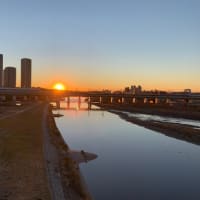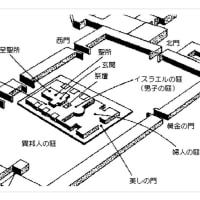ホセア書1章 ホセアの家庭を通しての預言
1.ホセア書について
本日からホセア書に入ります。ホセア書は、小預言書と呼ばれる12巻の預言書の最初のものです。小預言書とは呼ばれても、それは大預言書と比べて短い書というだけのことで、その価値が低いというものではありません。
さて預言者ホセアは、BC8世紀、つまりヤロブアム2世の時代からイスラエル北王国滅亡直前までの約40年間、イスラエル北王国を舞台として活躍しました(2列王15-17章)。これまで読んできたエレミヤ書やエゼキエル書では、イスラエル北王国が既に滅びていた時代、さらにユダ南王国が滅びようとする時代を背景とするものでした。時代が少し遡りますので、頭を切り替えてください。ホセア書が書かれたのは、ユダ南王国では、ウジヤ、ヨタム、アハズ、ヒゼキヤへと王が交替した時代です。彼と同時代に活躍した預言者は、イスラエル北王国ではアモスとヨナ、ユダ南王国ではイザヤとミカになります。ちなみに世界史的には、ローマとカルタゴが現れ、インドでは釈迦が宗教上の改革を進めていました。
ともあれホセアが預言者として現れた時代は、イスラエル北王国が霊的に最悪の事態を迎え、神の裁きによって滅ぼされる直前の状態でした。神はそのようなイスラエルを、なんとか救い出そうと、イスラエルに語り掛けます。その神の愛が、ホセアの家庭生活の経験に重ねられて語られるのが、この預言書の特徴にもなっています。
2.ホセアに生まれた三人の子
まず2節、ホセアが結婚した妻は、姦淫癖のある女でした。ですから生まれた子どももホセアの子ではなかったと考えられています。その彼女が最初に生んだ子どもは、「イズレエル(神は種を蒔く者の意味)」と名付けられました(4節)。イズレエルは、イスラエルでは記憶に残る地名です。イスラエルの王エフーがクーデーターを興し、ヨラム王とその妻イゼベルを殺害し、さらにヨラムの父アハブの70人の子らを虐殺し、その首を積み上げた場所でした。つまりそこは、汚れたイメージの強い場所です。ですからここには、反意的な意味の語呂合わせがあるのです。「あなたは、清純なイスラエルどころか、汚れたイズレエルである」と。そして第二子、「ロ・ルハマ」(6節)は、「彼女はあわれみを受けない」を意味します。妻の姦淫の現実に、ホセアは心冷えた思いでいるのです。そして第三子の名「ロ・アミ」(9節)、「我が民ではない」という意味です。ホセアは、「もう勝手にすれば」と妻への愛が断ち切れた思いでいました。
しかし大切なのは、その後のことです。初めからこんな結婚は失敗だった、と思われる状況の中で、さらに、崩壊を重ねていく家庭生活の中で、本来ならホセアは、失望、嫌悪、怒りのゆえに、家を飛び出すこともできたでしょう。にもかかわらずホセアは、その妻を受け入れ、家庭を立て直そうとするのです。結婚は約束事とはよく言ったものです。ただこのホセアの約束を守ろうとする妻への誠実さは、神とその民との関係を象徴する行動預言でもありました。エゼキエルのように、言葉のみならず、行動と自らの生活を通して神の深い愛を伝えるものであったのです。こうして神はイスラエルに対する変わらぬ愛を告白されます。「もう勝手にすれば、関係ないわ」と語られたまさにその場所で、イスラエルの建て直しが起こり(10節)、汚れたイズレエルが、大いなるイスラエルになる(11節)と言うのです。しかも彼らが救い出されるのは、弓、剣、戦い、馬、騎兵によらず、まさに神の業と知れる方法によってです(7節)。神の誠実さに感謝し従ってまいりましょう。では、今日も良き一日であるように祈ります。
<クイズコーナー>
最初に、昨日のクイズです。天使の中で、モーセの体について悪魔と論じ言い争ったのは、どの天使でしょうか?①ミカエル、②ガブリエル、③セラフィム。答えは①ミカエル(ユダ9)では今日の聖書クイズです。ホセアが活躍した時代は、次のどの預言者と同じ時代であったでしょうか?①イザヤ、②エレミヤ、③エゼキエル。答えは、また明日。では今日も良き一日となるように祈ります
The Book of Hosea, Chapter 1: Prophecy Through Hosea's Family
1. about the book of Hosea
Today we will begin the book of Hosea. The Book of Hosea is the first of twelve books of prophecy called the Minor Prophets. Although it is called a minor prophecy, that does not make it any less valuable than the major prophecy books, just that it is a shorter book.
The prophet Hosea was active in the Northern Kingdom of Israel for about 40 years from the 8th century BC, or the reign of Jarob-am II, to just before the destruction of the Northern Kingdom (2 Kings 15-17). In the books of Jeremiah and Ezekiel that we have read so far, the background is the time when the Northern Kingdom of Israel had already been destroyed, and furthermore, the Southern Kingdom of Judah was about to be destroyed. The time period goes back a bit, so switch your mind. The book of Hosea was written at a time when the southern kingdom of Judah was undergoing a change of kings from Uzziah, Jotham, Ahaz, and Hezekiah. Prophets who were active in the same period as him were Amos and Jonah in the Northern Kingdom of Israel, and Isaiah and Micah in the Southern Kingdom of Judah. Incidentally, in world history, Rome and Carthage appeared, and in India, Buddha was promoting religious reforms.
At any rate, when Hosea appeared as a prophet, the Northern Kingdom of Israel was at its worst spiritually, just before it was destroyed by God's judgment. God speaks to Israel in an attempt to somehow rescue it from such a situation. The prophecy is characterized by the overlaying of God's love on Hosea's experience of family life.
2. three children born to Hosea
First, in verse 2, Hosea married a woman who was an adulteress. Therefore, it is believed that the children born to her were not Hosea's children either. The first child she gave birth to was named Izreel (meaning "God is the sower") (v. 4). Izreel is a memorable place name in Israel. It was the place where Jehu, the king of Israel, staged a coup, murdered King Joram and his wife Jezebel, and then slaughtered the 70 sons of Ahab, Joram's father, and piled up their heads. In other words, it is a place with a strong image of uncleanness. So here we have a word that has an antithetical meaning. You are not pure Israel, but unclean Yisroel." And the second child, "Lo Ruhama" (v. 6), means "she will not receive mercy." Hosea is chilled by the reality of his wife's adultery. And the name of the third child, "Lo Ami" (v. 9), means "not my people." Hosea feels that his love for his wife has been severed, saying, "Do as you please now.
What is important, however, is what happened afterward. In the midst of a marriage that seemed like a failure from the start, and in the midst of a family life that was falling apart, Hosea could have run away from home in disappointment, disgust, and anger. Nevertheless, Hosea accepts his wife and tries to rebuild his family. It is often said that marriage is a promise. But Hosea's faithfulness to his wife in trying to keep his promise was also a behavioral prophecy that symbolized the relationship between God and his people. Like Ezekiel, he communicated God's deep love not only through his words, but also through his actions and his life. Thus God confesses His abiding love for Israel. In the very place where he said, "Do as you please, I don't care," the rebuilding of Israel will take place (v. 10), and the unclean Israeel will become the great Israel (v. 11). Moreover, they will be delivered, not by bow, sword, battle, horse, or cavalry, but by the very means known as the work of God (v. 7). Let us thank God for His faithfulness and follow Him. Let us pray for a good day ahead.
<Quiz Corner
First, yesterday's quiz. Which angel argued with the devil about Moses' body? (1) Michael, (2) Gabriel, and (3) Seraphim. The answer is 1) Michael (Jude 9) is today's Bible quiz. In which of the following prophets was Hosea active in the same period? (1) Isaiah, (2) Jeremiah, and (3) Ezekiel. The answer will be given tomorrow. Well, I wish you a good day today!

















